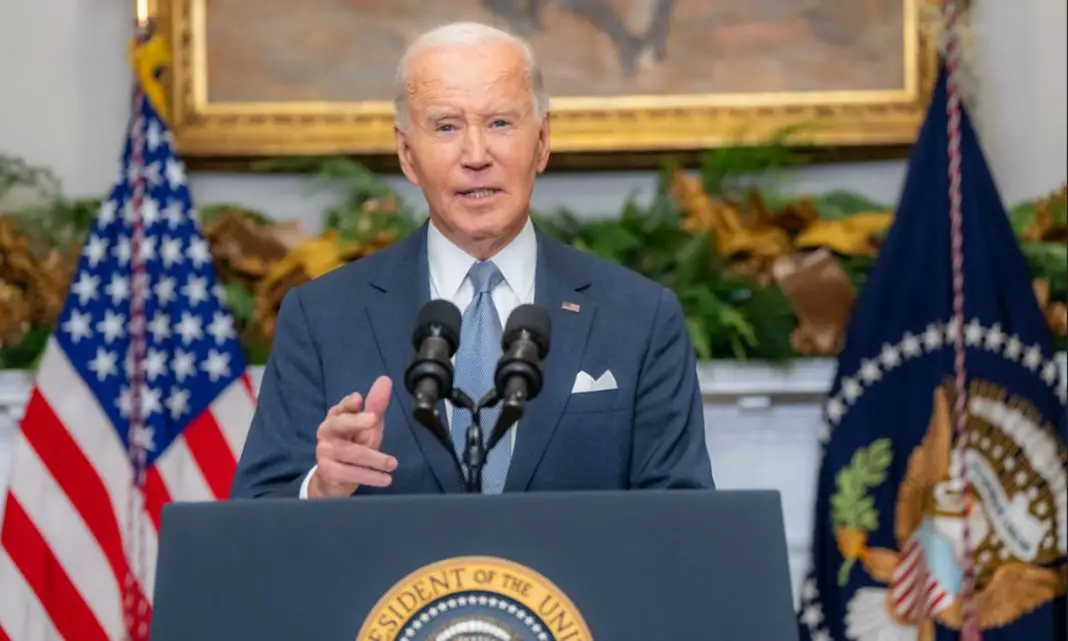It’s no secret that the American people are growing increasingly disgruntled with the mainstream media. In fact, the media is losing more and more trust from the public with each passing day. It’s easy to see why that is. So often, news outlets have a set narrative that they want to push onto their viewers. These narratives usually clash with the actual facts of a story.
But that doesn’t stop the mainstream media from continuing to peddle what they think the American people should know. One of the biggest examples of this was the 2024 election and then-President Joe Biden’s cognitive decline. Whether you were a Republican or a Democrat, you could easily tell that Biden was not the same person he was during his time as vice president. He was clearly suffering from a form of cognitive decline.
The media of course knew this, and most of them refused to properly report on it until his June 27 debate against Donald Trump where he constantly mumbled his words or lost his train of thought. That was the point where news outlets were forced to tell it like it was with Biden’s decline. But now, more is coming out about the lengths in which the media continued to erode trust with the public through their covering up of Joe Biden’s mental acuity.
The Media’s Silence on Biden’s Decline: A Fear of Helping Trump?
In a candid moment on Piers Morgan Uncensored, former NBC anchor Chuck Todd revealed a troubling hesitation within the media during the 2024 presidential race. When pressed by the British host about why journalists didn’t dig deeper into concerns over then-President Joe Biden’s age and mental sharpness—issues that were plain to many viewers—Todd admitted the press held back. The fear? That spotlighting Biden’s struggles might inadvertently boost his rival, Donald Trump.
Todd initially stood up for the media, suggesting their reporting was subtle but effective enough for the public to notice Biden’s challenges. “Look, we were subtle. ‘He’s using the back staircase, he’s not using the front staircase. Hey, he’s not doing any interviews,'” the former Meet the Press host explained. But he quickly acknowledged a deeper issue: many in the press avoided drawing explicit conclusions. “So there was this reluctance to draw the conclusion to say, ‘Is he not doing this?’ And that I agree with,” he said. “That was held back, held back a lot [by the mainstream media].”
While Todd pointed to lone voices like Washington Post columnist David Ignatius, who in September 2023 penned a scathing piece calling for Biden to step aside, he conceded the media as a whole shied away from the story. “The only thing I can chalk it up to is this — whatever you want to call it — this fear that some members of the media had sometimes that they would be perceived as helping Trump if they somehow diminished Biden,” he said. To Todd, this caution was a misstep, one of many that eroded trust in traditional journalism.
He cited the media’s role in pushing to remove Trump from social media platforms after the January 6 Capitol riot as another example of overreach. Far from silencing Trump, Todd argued, it allowed him to build his own media empire. “It looks more obvious today,” he said.
“Because what did he do? He built his own information ecosystem and now traditional media is doing what? Showing up on YouTube.” The result, in Todd’s view, is a weakened press. “Traditional media doesn’t have the influence it did anymore because it [went] along with this deplatforming exercise,” he said.
Todd’s reflections come as new revelations expose just how aware some Democrats were of Biden’s decline—while publicly dismissing it. Two books released this month, including Chris Whipple’s Uncharted: How Trump Beat Biden, Harris, and the Odds in the Wildest Campaign in History, paint a stark picture.
Whipple recounts a moment in May 2024 when Rep. Nancy Pelosi, after a White House meeting, confided to a friend about Biden’s condition. “He was not the same Joe Biden,” she reportedly said, shaken by how diminished he seemed. Yet just weeks later, Pelosi publicly slammed a Wall Street Journal article as a “hit piece” for raising similar concerns, according to Whipple.
Todd’s admission and these new accounts highlight a media and political landscape wrestling with tough questions: When does caution become complicity? And can the press regain its footing in an era where trust is fractured? For now, the silence on Biden’s struggles during the 2024 race stands as a cautionary tale—one the media may still be grappling with.
Did you lose more trust in the media after the 2024 election cycle? Why or why not? Let us know down in the comments!


Both the unscrupulous Democrats & the morally-bankrupt Major Media criminally FAILED the citizens of the US by their lies about the senile President & their failure to QUESTION his mental status! Electing a Senile man president & allowing a senile fool to continue in the office of President is a FRAUD upon the American people!! Since only Democrats would willingly vote for a senile foolish old man, the media KNEW that Independents & Republicans would kick the senile fool OUT OF OFFICE!!